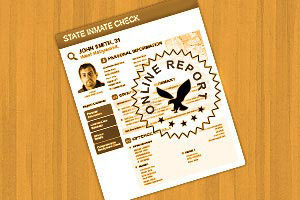Massachusetts Public Records
This is the Massachusetts State Records website. It’s mission is to provide the people of Massachusetts the right to examine and obtain public records. This is in accordance with the Massachusetts Public Information Act, which ensures government information and records are available to the public.
The tools on this website help to ensure that all members of the general public have the right and ability to access these records easily and concisely, without necessarily requiring personal information.
The following information is available through the Massachusetts State Records website: criminal records, court records, and vital records.This includes over 60 million transparent public records.
Are Massachusetts Records Public?
The majority of all the records and information created or used by the various government entities are open to the public. The Massachusetts Public Records Law defines public records as information made, received, or used by any officer or employee of the commonwealth or any person or organization funded by the commonwealth (G. L. c. 4, § 7(26)).
What is Considered Public Information in Massachusetts?
Records considered public information in Massachusetts according to the states public records laws include the following:
- Massachusetts inmate records
- Marriage and divorce records
- Birth and Death records
- Sex offender information
- Massachusetts Property and land records
- Arrest records
- Massachusetts crime statistics
- Criminal records and criminal history records
Public records act requests can be made to a government agency's administrative office or Records Access Officer (RAO). The RAO coordinates responses, identifies the records requesters, and generally assists people looking for public records. The public records law also instructs that the RAO must permit records inspection or provide copies of non-exempt public records at reasonable times and without unreasonable delays.
Certain record custodian government agencies may also maintain a free public data search database for certain types of records. For instance, the Commonwealth of Massachusetts Sex Offender Registry Board's (SORB) public sex offerers database. A public data search may be performed by interested parties through these types of databases.
How Do I Find Public Records in Massachusetts?
According to the public record laws in Massachusetts, the RAO must permit inspection or furnish a copy to requesters upon getting a valid request. Records can be acquired from an appointed custodian or records officer using a few easy steps.
- Identify the record required and the agency or municipality in custody.
The first thing to do is identify the record you require and which agency or municipality has it. For instance, sex offender records would be at the state sex offenders registry, and arrest records and incident reports would be with state and local law enforcement. Obtaining this information will prevent delays and even denials of public records requests. If a request is sent to the wrong agency or municipality, it may be denied. However, in the denial response, agencies will usually inform requesters of the correct custodian. Meanwhile, the custodian agency for vital records is the state Department of Health Registry of Vital Records (RVRS).
- Contact the Custodian
Government agencies and municipalities are required to appoint a Records Access Office(RAO). This official is in charge of attending to request for public records and must answer all records quickly and efficiently. Requesters must direct all public records requests to the RAO. The contact details of this official are usually provided online on the agency’s website. If unavailable on the site, the requester may call the agency or municipality office and ask to whom the public record request should be addressed.
- Make the request
Record requests can be made in person orally or may be written and submitted to the records access officer. Telephone requests may also be accepted with the permission of the RAO. The request must provide a reasonable and accurate description of the record being requested to allow it to be located quickly. Requests do not require official forms, but the forms may be provided to help the records request process. Written requests and forms can be submitted by hand, by mail, electronically by email, or by facsimile if available. In-person requests must be submitted during the office hours provided on the agency/municipality website. Copies will also only be provided after the RAO receives payment of all required fees. The requester does not have to provide his identity or the purpose of the request, but they may be necessary to determine:
- If the record is being requested for or can be used for commercial purposes
- If the requester may be granted a fee waiver
Using Third-Party Sites to Find Public Records Massachusetts
City Records
Public city records may also be accessible from third-party websites. These non-government platforms come with intuitive tools that allow for expansive searches. Record seekers may either opt to use these tools to search for a specific record or multiple records. However, users will need to provide enough information to assist with the search such as:
- The name of the subject involved in the record (subject must be older than 18 or not juvenile)
- The address of the requestor
- A case number or file number (if known)
- The location of the document or person involved
- The last known or current address of the registrant
Third-party sites are not sponsored by government agencies. Because of this, record availability and results may vary.
Public Records
Public records can also be accessed from third-party websites. These third-party public records aggregate websites offer search services that are non-geographically limited, making the search result expansive and typically straightforward. However, users will need to provide enough information to assist with the search, such as:
- The name of the subject involved in the record as long as the subject is not a juvenile
- The last known or location of the record subject
Third-party public records search websites are not government-sponsored services. Therefore, the availability and accuracy of results can vary.
How Do I Lookup Public Records for Free in Massachusetts?
Locating a public record for free in Massachusetts is usually subject to the form of record being requested and the agency or municipality in custody. The easiest way to look up a record for free would be to request to physically inspect the records at the custodian’s office. Searching for the record online is also a good way to look up a public record for free. Most state courthouses in Massachusetts have public access terminals that allow requesters to lookup court case records for free, then pay for only the copies they want to be made. Courts records can also be looked up for free on the eAccess database and the Public Case search portal. The sex offender registry operated by the Commonwealth of Massachusetts and its search tools is available online to obtain sex offender records and information for free. Searching the state agency’s website online and requesting to inspect records at its custodian’s office remain the best ways to look up public records for free.
Unfortunately, not all Massachusetts record custodians provide free public record searches. For instance, most records held and managed by county clerk's and county recorder's offices, including certain vital records and land deeds, require payment in order to be accessed and copied.




